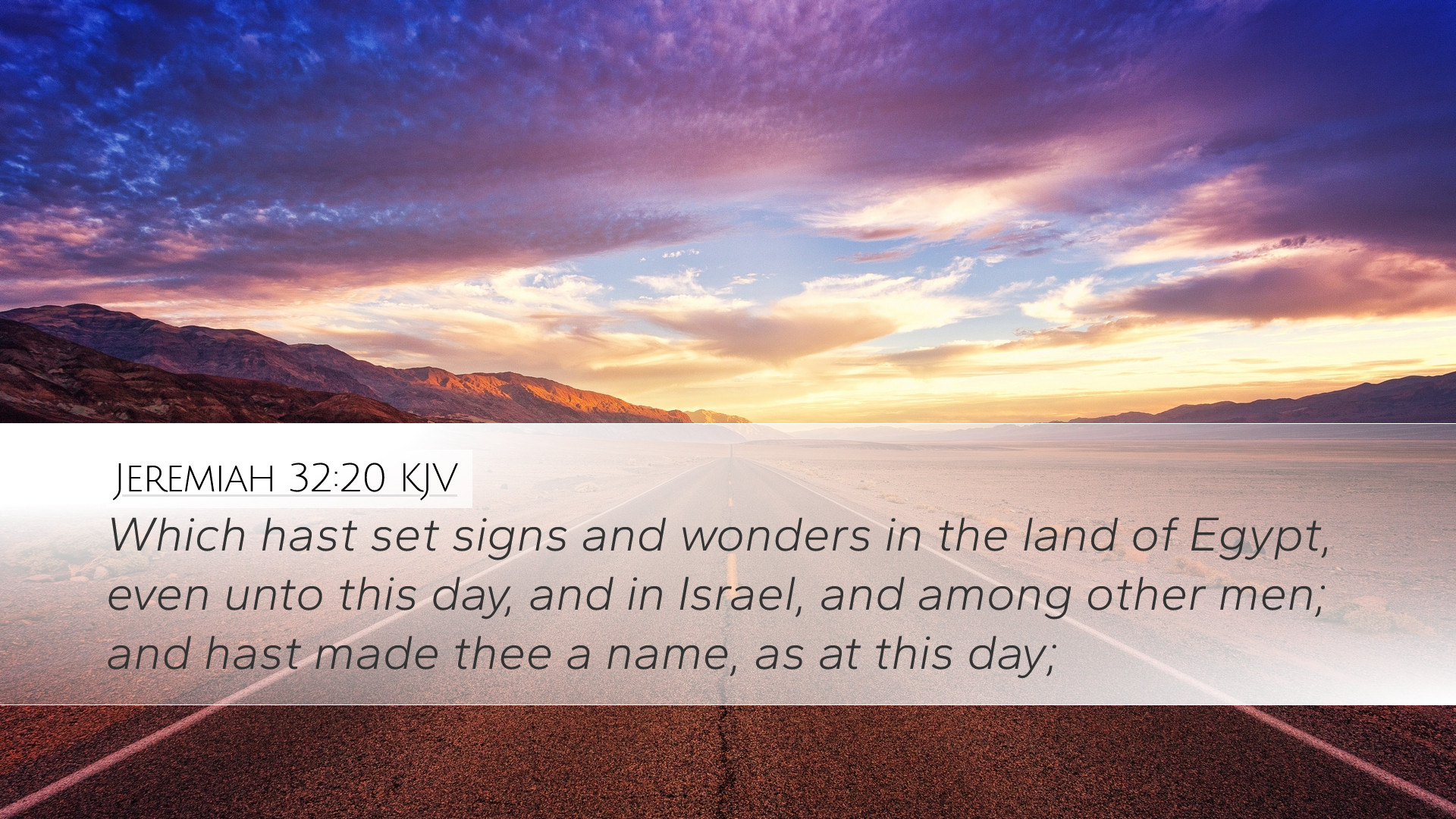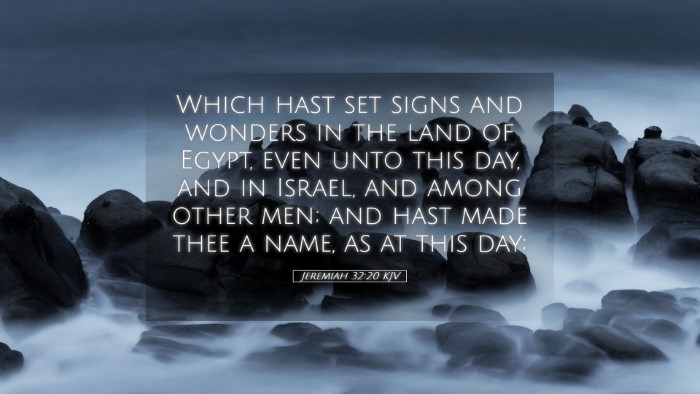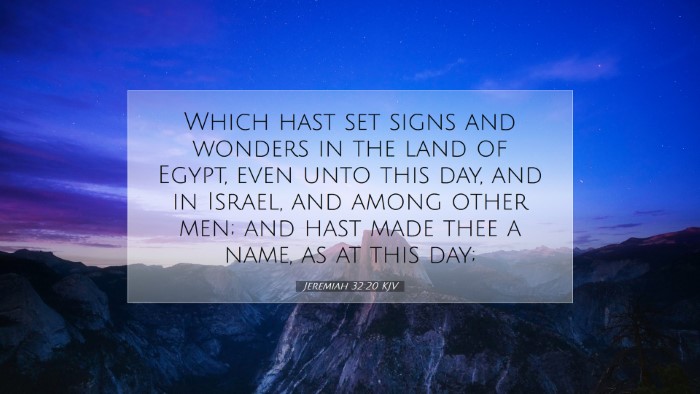Commentary on Jeremiah 32:20
Verse Text: "Which hast set signs and wonders in the land of Egypt, even unto this day, and in Israel, and among other men; and hast made thee a name, as at this day." (Jeremiah 32:20 KJV)
Introduction
This verse from the book of Jeremiah encapsulates a profound understanding of God's power, His miraculous works, and His undeniable sovereignty over the history of His people. In this commentary, we will explore the implications of this verse through insights derived from public domain commentaries by prominent theologians such as Matthew Henry, Albert Barnes, and Adam Clarke. Each of these authors provides valuable perspectives that help deepen our understanding of this scriptural passage.
Historical Context
Jeremiah prophesied during a tumultuous time in Israel's history, specifically leading up to the Babylonian conquest. The context of this scripture takes us back to God’s mighty works in Egypt, which are central to the Jewish identity as they recall the exodus and the establishment of their covenant with God. This commentary brings forward the significance of remembering God’s past actions as a means to bolster faith in present predicaments.
Insights from Matthew Henry
Matthew Henry observes this verse in the context of God's mighty hand and unmatched glory. He emphasizes:
- God's Sovereignty: Henry remarks on God’s ability to perform "signs and wonders" not only as historical facts but as ongoing testimonies of His power and presence in the world.
- Faithfulness to Israel: He points out that God's name, established through His actions, reinforces the idea that He remains intimately involved in the affairs of His people for their ultimate good.
- Encouragement to Believers: Henry underscores the importance of remembering God's past deliverances as a foundation for trust and hope in times of current adversity.
Insights from Albert Barnes
Albert Barnes delivers a nuanced approach that widens the view of God’s works:
- Historical Reminder: Barnes explains that the reference to Egypt delves into the deep historical roots of God's deliverance, reminding the Israelites of their covenant relationship with Him.
- God’s Reputation: He notes that God’s actions have established a name for Him, suggesting that the reputation of God is built upon His faithfulness to fulfill His promises.
- Global Significance: Barnes highlights that God’s signs and wonders were not only for Israel but also acknowledged among "other men," signifying the universal acknowledgement of God’s sovereignty.
Insights from Adam Clarke
Adam Clarke offers a detailed theological insight:
- Miraculous Power: Clarke emphasizes the miraculous nature of God’s deeds, asserting that these acts are extraordinary interventions in the natural order.
- Legacy of Worship: He notes that these signs are intended to create a legacy of worship and reverence for God, illustrating that worship arises from an awareness of His greatness and mighty acts.
- Theological Reflection: Clarke encourages believers to engage in reflective theology, considering how God’s historic interventions inform their present faith decisions.
Application for Today
The insights from these biblical commentators also possess relevancy for today’s believers:
- Renewed Faith: In times of uncertainty, recalling the "signs and wonders" of God’s past engages the heart and mind, leading to renewed faith.
- Understanding God’s Character: This verse invites a deepened understanding of God’s character as one who acts decisively and successfully in the lives of His people.
- Call to Evangelism: Recognizing that God’s name has been proclaimed among all nations, believers are encouraged to continue sharing the message of His deeds with the world.
Conclusion
Jeremiah 32:20 serves not just as a mere historical reference but as a powerful reflection of the central attributes of God: His sovereignty, His miraculous nature, and His faithfulness to His covenant. Through the analysis of public domain commentaries, we have come to appreciate the multifaceted implications of this verse. As spiritual leaders and scholars, it is vital to revisit these themes within our own contexts—relying on the history of God's acts to embolden our faith and inform our practice as we navigate the challenges of faith in contemporary times.


